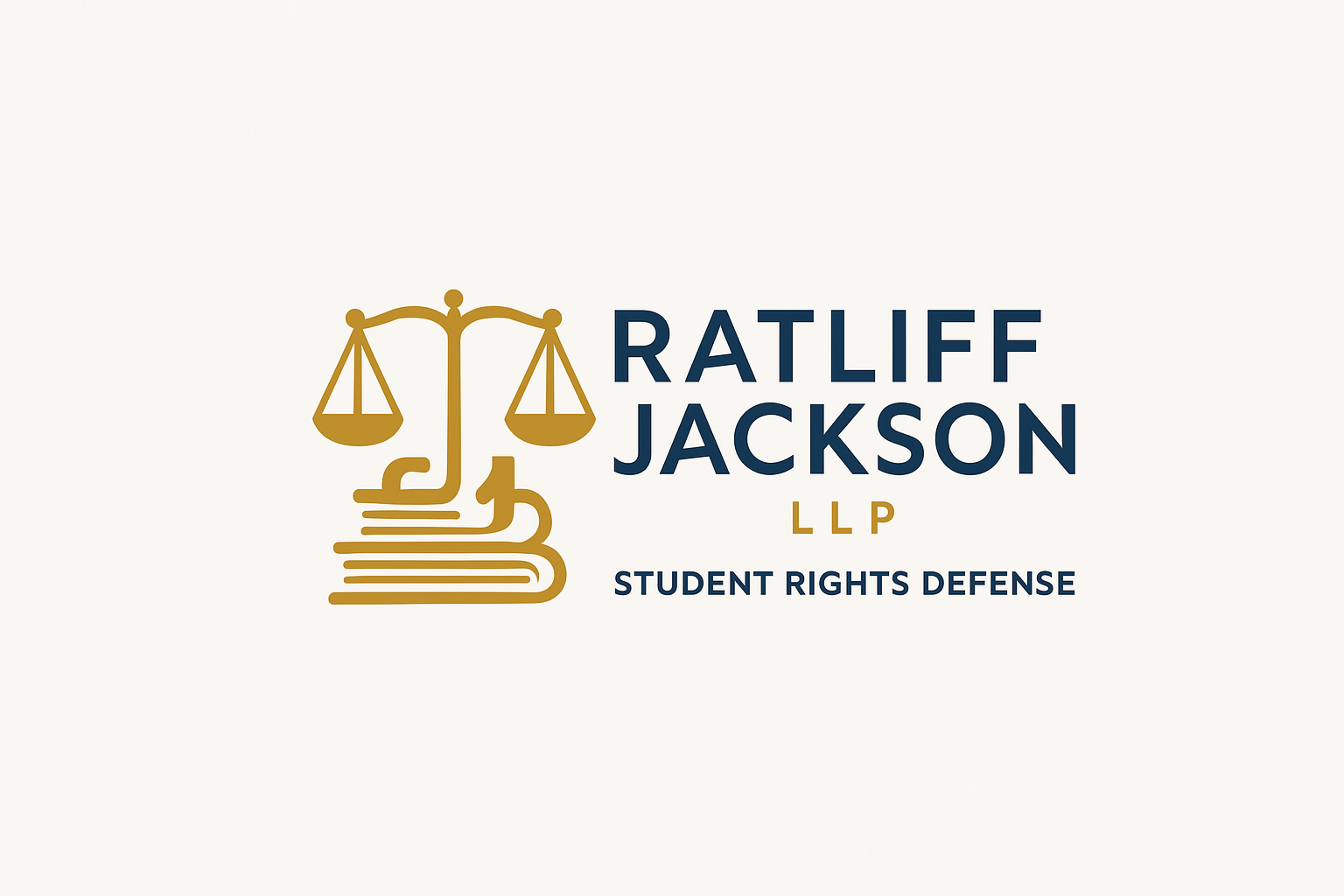Title IX Advisors
Title IX Advisors : Legal Advocacy When Everything Is at Stake
When your child is facing a sexual misconduct investigation or has filed a complaint under Title IX, the stakes could not be higher. Expulsion, suspension, permanent disciplinary records, and emotional trauma are all on the line. Navigating this process without legal guidance often leads to irreversible outcomes.
At our firm, we serve as dedicated Title IX advisors to students and families across New Jersey and Pennsylvania—whether your child attends a public high school in Camden County or a private university in Philadelphia. We defend educational rights with legal precision, trauma-informed care, and procedural strategy.
What Is a Title IX Advisor?
Under federal law, every student involved in a Title IX proceeding has the right to an advisor of their choice—including a licensed attorney. That advisor may accompany them to:
- Intake and investigatory interviews
- Informal resolution discussions
- Evidence review sessions
- Pre-hearing meetings
- Live hearings, where advisors conduct cross-examination
Unlike a support person or school-assigned advocate, a legal Title IX advisor can:
- Prepare opening and closing statements
- Challenge witness credibility
- Identify constitutional or procedural violations
- Prevent unfair sanctions from being imposed
Without an experienced advisor, students may unknowingly incriminate themselves, agree to harmful resolutions, or miss critical deadlines.
Why You Should Never Rely on a School-Appointed Advisor
Many schools offer a staff member—often a dean, faculty member, or general counsel’s office employee—as a neutral advisor. But these individuals typically lack legal training, have conflicts of interest, and may subtly prioritize the institution’s liability exposure over your child’s due process rights.
In contrast, a private Title IX attorney advisor is loyal only to your child. We bring:
- Procedural knowledge from reviewing Title IX policies across dozens of districts and universities
- Strategic defense tactics grounded in cross-examination, evidentiary review, and appellate advocacy
- Direct, confidential communication with your family to ensure clarity at every step
- A trauma-informed, age-sensitive approach when representing minors or vulnerable students
This is not a college conduct issue—it is a quasi-criminal proceeding that demands serious legal preparation.
Common Title IX Allegations We Defend
We represent both complainants and respondents in matters involving:
- Allegations of sexual assault or rape
- Non-consensual sexual contact or sexual coercion
- Harassment based on sex, gender identity, or orientation
- Online harassment or revenge porn
- Title IX retaliation by peers, faculty, or administrators
- Title IX violations involving minors, IEPs, or special education students
- Intersectional issues, including racial bias or disability-based discriminations
We also challenge cases where schools fail to follow their own Title IX policies, such as:
- Refusing to investigate credible complaints
- Denying a student the right to present evidence
- Using informal resolution procedures improperly
- Retaliating against students who speak to the media or hire legal counsel
Title IX in K-12 Public Schools: What Parents Must Know
Title IX applies not just to colleges—but to every public elementary, middle, and high school that receives federal funding.
This means your 13-year-old child can be subjected to:
- Formal sexual misconduct investigations
- Police referrals and School Resource Officer (SRO) interviews
- Emergency removals or out-of-school suspensions
- Mandatory reporting to Child Protective Services
- Expulsion hearings, even without a criminal conviction
Many parents are blindsided by these procedures and believe school administrators will act fairly. Do not make that assumption. Schools are under immense political and legal pressure to act swiftly, often at the expense of accuracy and fairness.
As Title IX advisors, we:
- Review every notice of allegation and school policy for legal violations
- Intervene early to control narrative development
- Attend every meeting or hearing with your child
- Protect special education rights under the Individuals with Disabilities Education Act (IDEA) or Section 504
Title IX in Colleges and Universities: Procedural Risks
College Title IX procedures vary significantly across institutions. As of August 1, 2024, the U.S. Department of Education no longer requires colleges to hold live hearings or permit advisor-led cross-examination.
Instead, schools may choose between a hearing model or a single-investigator model, as long as the process is fair, impartial, and provides both parties a meaningful opportunity to respond to evidence.
Despite this flexibility, students may still face serious consequences during and after a Title IX investigation, including:
- Long-term disciplinary records
- Revocation of scholarships or housing
- Suspension or expulsion
- Athletic or extracurricular disqualification
- Parallel criminal investigations or restraining orders
- Because of these risks, students should have a legally trained advisor at every step of the process—regardless of whether a hearing is held.
Our role as advisor ensures that your student is not alone in the room, and that every word is strategic.
Title IX Retaliation and Misconduct by Schools
Students who report sexual assault often face retaliation—subtle or overt. Under Title IX, retaliation is strictly prohibited. Examples include:
- Being dropped from sports teams
- Receiving unjustified discipline or poor grades
- Social ostracism encouraged by staff
- Removal from school events or leadership positions
If your child is being punished or isolated after filing a complaint, we will act immediately to enforce their rights and seek appropriate remedies.
What to Expect: The Title IX Process at a Glance
While every school policy differs, most Title IX cases follow this general structure:
- Notice of Allegations
The student receives a formal letter outlining the accusations and available rights. - Investigation Phase
Investigators interview parties and witnesses, and gather documentation. You may have limited time to submit relevant evidence. - Evidence Review Period
Each party and their advisor may inspect and respond to all evidence, including texts, emails, photos, and statements. - Live Hearing (College-Level Cases)
Advisors conduct direct questioning of the opposing party and witnesses. This is the most legally sensitive stage of the process. - Determination and Sanctions
A decision-maker issues a written finding and, if warranted, imposes disciplinary sanctions. - Appeal or Challenge
Both parties may appeal on limited grounds—such as procedural irregularity or new evidence.
Frequently Asked Questions About Title IX Advisors in NJ
- Does my child have the right to a lawyer in a Title IX case?
Yes. Every student may have an advisor of their choice, including an attorney, under federal Title IX regulations. This is true for both complainants and respondents.
- Can my child be expelled without a criminal conviction?
Yes. Title IX disciplinary standards are based on a “preponderance of the evidence,” not the criminal standard of “beyond a reasonable doubt.” A student may face suspension or expulsion even if police decline to prosecute.
- What if the school refuses to let me participate as a parent?
In K-12 cases, parents typically have the right to attend meetings and receive updates. However, many schools try to restrict parent involvement. Our firm pushes back when schools improperly exclude families from the process.
- What is the role of the advisor during the hearing?
At the college level, only the advisor—not the student—is allowed to conduct cross-examination. A trained legal advisor ensures that key questions are asked effectively and in compliance with the rules.
- Can I switch advisors mid-process if I lose trust in the school-assigned one?
Yes. Students may change advisors at any time and may retain a private attorney to take over, even on short notice.
- Are Title IX records confidential?
Generally, yes—but schools may share outcomes with limited parties, and findings may appear on transcripts or in background checks. We advise families on FERPA protections and sealing disciplinary records.
- Can we settle the matter privately without a full hearing?
Yes. Many Title IX cases now offer “informal resolution” options. However, these can be risky without legal review. We evaluate whether such agreements protect your child’s long-term interests.
- What if the other student involved hires an aggressive attorney?
Your child should never face cross-examination or negotiation without equal legal representation. We match the tone and tactics of the opposing advisor while preserving your child’s dignity and legal safety.
- Do Title IX protections apply to LGBTQ+ students?
Yes. The U.S. Department of Education interprets Title IX to prohibit discrimination based on sexual orientation and gender identity. Schools must investigate bullying, harassment, or exclusion tied to these characteristics.
- What can a Title IX advisor do that a regular school advocate cannot?
We apply legal standards, challenge bias, and protect your child’s rights with enforceable leverage. School-assigned advisors often lack training, authority, and objectivity. As your advisor, we serve only your child’s interests.
Protect Your Child’s Future—Start Now
Whether your child has been accused of misconduct or is seeking justice under Title IX, early legal intervention is essential. A misstep in the first days of the investigation can shape the entire outcome.
Call (856) 209-3111 to speak with a New Jersey Title IX attorney advisor today or request a confidential consultation online .

